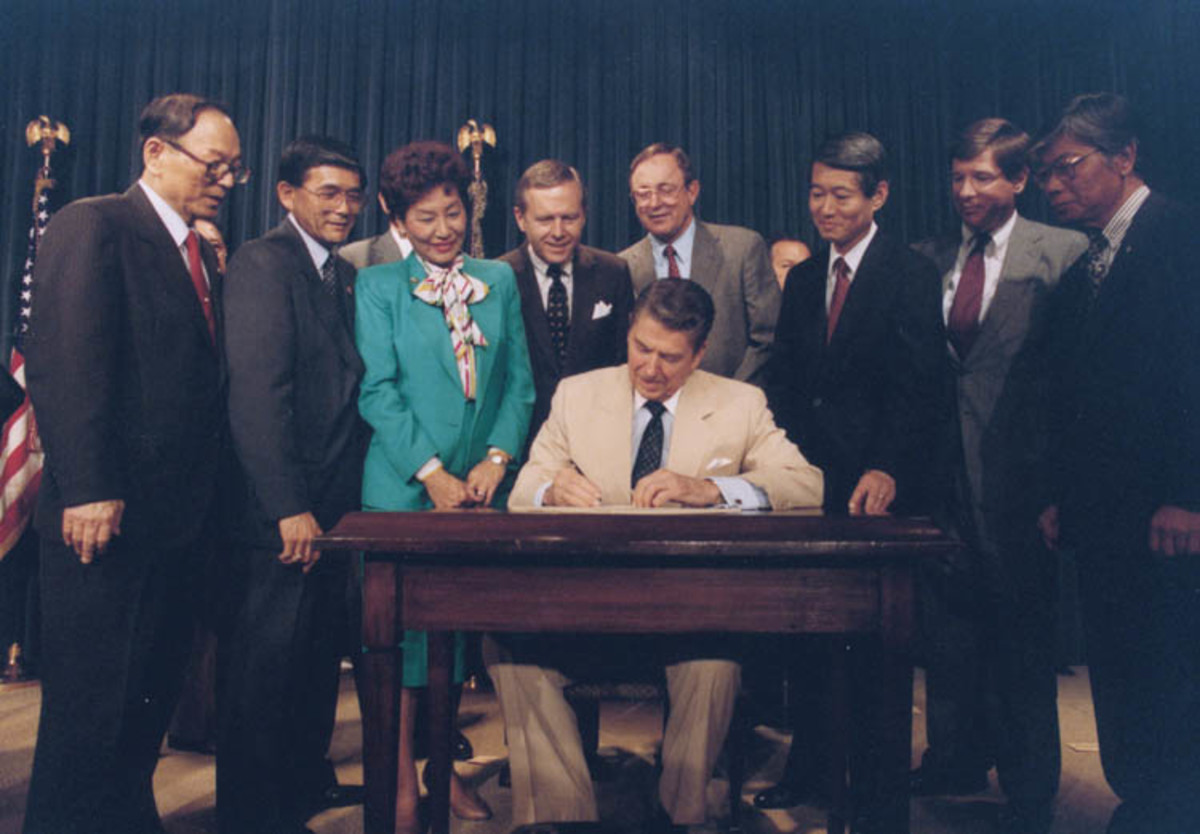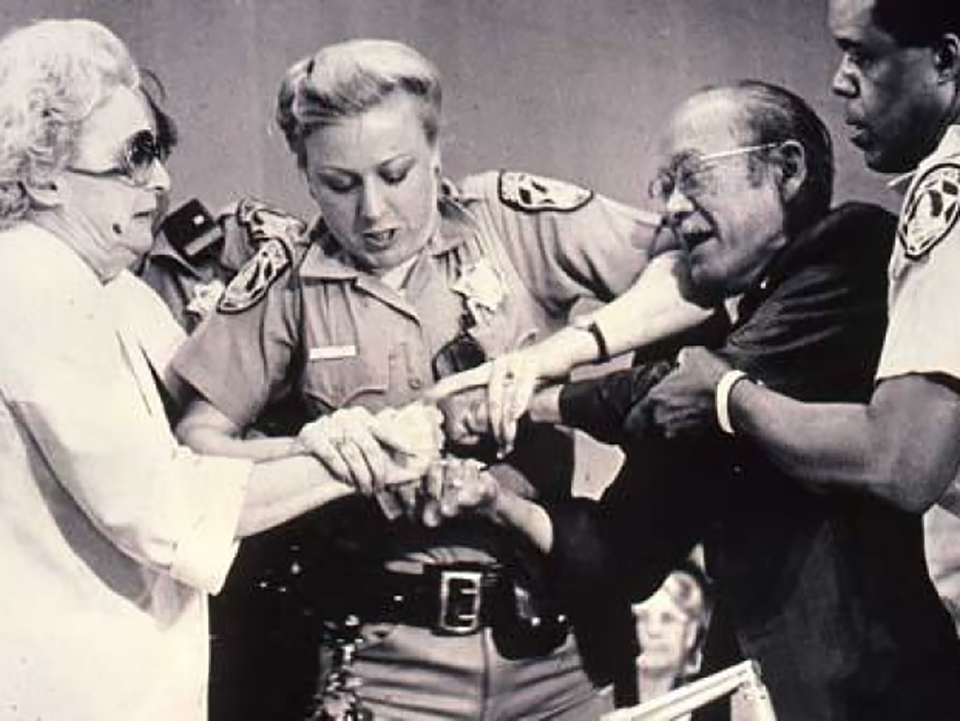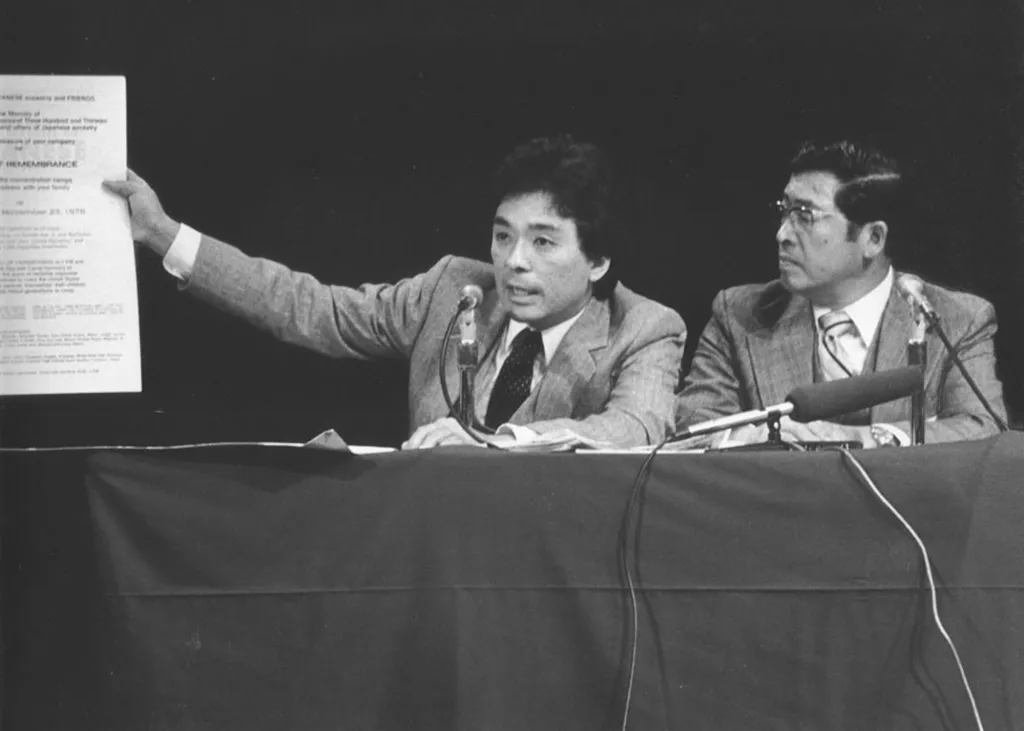
Signing of the Civil Liberties Act, courtesy of Wikimedia Commons
Courtesy of Manzanar National Historic Site

Japanese American Family: Issei, Nisei, Sansei, courtesy of Densho Repositories
Decades after the horrors of internment, the Japanese American community still grappled with their fractured identity, further amplified by generational differences. The third generation, the Sansei, challenged the shame that shrouded the camps' history, advocating for justice to reclaim the narrative around their own cultural history.
"How could I as a 6-month-old child born in this country be declared by my own Government to be an enemy alien? How can my mother and father who were born in this country also be declared a potential enemy alien to their country?"
- Robert Matsui, congressman
Despite internal and external resistance, the effort for justice and acknowledgment gained gradual victories throughout the 1980s. The fight for recognition rallied great strength from within the community, uniting against many of the same racist sentiments that had spurred incarceration in the first place.
"When you see the hatred of somebody directed at you...I thought to myself, it’s that kind of dedicated hatred that got us into the camp.”
- Amy Iwasaki Mass

Aggression at redress hearings, courtesy of Densho Encyclopedia
The community found a powerful voice in media outlets, community organizations, and individual leaders. Social and political justice within the Japanese American community was now redefined as deserving of honor and pride.
“What I saw was that the grassroots support for redress and reparations existed among [Japanese Americans] of all ages. I saw that two-thirds of the participants were the Nisei ex-internees of the camps who had come to stand for redress for their families.”
- Frank Abe, activist and author

Frank Abe at redress hearings, courtesy of Stan Shikuma
1988 marked the signing of the Civil Liberties Act, which would ultimately grant official government acknowledgment and financial restitutions for Japanese internment.

Signing of the Civil Liberties Act, courtesy of Wikimedia Commons
“[Executive Order 9066] was not justified by military necessity… the broad historical causes which shaped these decisions were race prejudice, war hysteria, and failure of political leadership.”
- CWRIC report "Personal Justice Denied," February 24, 1983
"Yet no payment can make up for those lost years. So, what is most important in this bill has less to do with property than with honor. For here we admit a wrong; here we reaffirm our commitment as a nation to equal justice under the law."
- President Ronald Regan, 1988
Amy Du, Antonia Kwan, and Brietta Yi
Senior Division
Group Website
Student Composed Words: 1199
Process Paper Words: 500
Media Length: 1:40